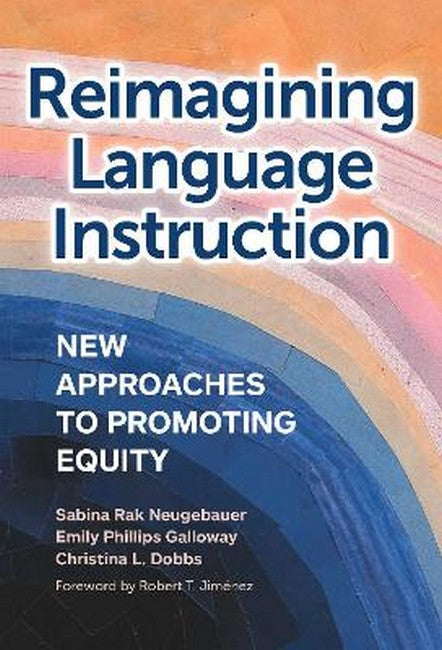Sabina Rak Neugebauer is an associate professor of literacy in the College of Education and Human Development at Temple University. Emily Phillips Galloway is an assistant professor of multilingual learning and literacy education at Peabody College, Vanderbilt University. Christina L. Dobbs is an assistant professor and director of English education for equity and justice, at Wheelock College of Education and Human Development, Boston University.
Request Academic Copy
Please copy the ISBN for submitting review copy form
Description
Contents ForewordRobert T. Jimenez ?xi Acknowledgments ?xv 1. ?Introduction ?1 Language Awareness Inquiry ?3 Conceptions That Promote Equity Versus Misconceptions That Limit Equity ?4 Chapter 1 Reflection ?8 Part I. Individual Inquiry: Dismantling Linguicism 2. ?Language Hierarchies Versus Language Resources for Learning ?13 Chapter 2 Reflection ?18 Conceptions That Limit Equitable Language Instruction: Language Hierarchies ?18 Conceptions That Promote Equitable Language Instruction: Approaches That Resist Language Hierarchies ?21 Closing Thoughts on Valuing Diverse Language Resources for Learning ?30 Chapter 2 Closing Reflection ?30 3. ?Language as a Dichotomy Versus Language as a Continuum ?31 Chapter 3 Reflection ?32 What Makes a Skilled Language User?: A Continuum Perspective ?32 The Problem With Binaries in Language Teaching and Use ?37 A Continuum Perspective to Begin Dismantling Language Hierarchies ?41 Closing Thoughts on Promoting a Continuum Perspective ?43 Chapter 3 Closing Reflection ?43 Part II. In the Classroom: Practices That Support Linguistic Fluidity 4. ?Language Beyond Words ?47 Chapter 4 Reflection ?48 Language: The Whole Is More Than The Sum of Its Parts ?49 Moving Away From Vocabulary-Based Teaching ?66 Chapter 4 Closing Reflection ?69 5. ?Promoting a Path, Not a Phase ?70 Chapter 5 Reflection ?70 School Text: Challenge and Opportunity ?71 Classroom Language Conversations Across the Grades ?78 Conceptualizing Language Awareness Across Grades ?88 Chapter 5 Closing Reflection ?89 Part III. Collective Inquiry: Forging Communities for Equity 6. ?Taking a Collaborative Approach: Supporting Equitable Language Teaching Through Teams ?93 Chapter 6 Reflection ?94 Collaborating for Equitable Language Teaching ?95 How Successful Teacher Teams Promote Equity Through Language Teaching ?96 Forming Teams ?114 Collaborating With Colleagues Who Focus on a Similar Content Area ?114 Collaborating With Colleagues Across the Grade Level ?115 Chapter 6 Closing Reflection ?117 7. ?Taking a Systemic Approach: Improving School Culture Through Collective Inquiry ?118 Chapter 7 Reflection ?119 Creating a Schoolwide Culture of Linguistic Equity ?119 Learned, Changed, and Built ?129 A Vision for Equitable Language Teaching ?131 Final Closing Reflection ?132 Glossary ?133 References ?137 Index ?147 About the Authors ?153
"Teachers receive advice on how to value their students' various linguistic capabilities and to avoid linguicism, which the authors define as 'discrimination based on one's language.' Recommended." -CHOICE

